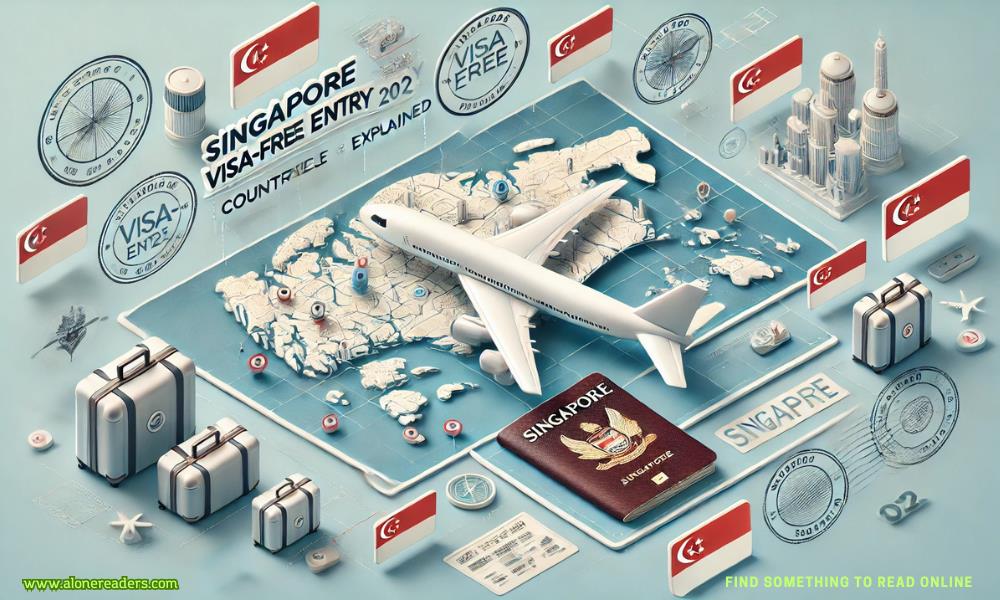Page 4 of Adrift in Currents Clean and Clear
The first day Nadya sat in her class and listened to her teacher speaking in slow, careful English and didn’t need to request any direct translations, she cried. She sat at her desk and wept, and her instructor, a very nice woman who had become an ESL teacher out of a genuine desire to help people communicate, smiled in understanding and let her cry until the tears dried on their own.
Once the language classes were more about polish and refinement than actual base construction, it was time for speech classes, hour upon hour with a private tutor whose entire focus was the elimination of Nadya’s accent. It was important, apparently, that she not betooforeign when she was meeting new people: they needed to look at her and understand that she had been plucked from another country, washedand pressed and molded into the perfect model of American childhood. Her teachers didn’t have strong opinions about whatkindof child she was going to be, as long as she was normal.
Six months after her arrival in Denver, Nadya was deemed ready to stand before a jury of her peers and be judged on her performance of American normalcy, and Carl and Pansy enrolled her in the local elementary school. The matrons at the orphanage had always put as much of a focus on education as they could, but they were understaffed and overstretched, and it hadn’t been sufficient to keep the children where they needed to be. Nadya was reasonably up to where she was meant to be with math, but reading was essentially a matter of starting over from scratch, while history and geography both required forgetting most of what she already knew.
Relearning the history of the world from an Americentric perspective was technically no more difficult than any other part, but it was the most frustrating by far. Seeing achievements she had been taught mattered hugely reduced to a line in a textbook, if that, made her head ache, even as she buckled down and soldiered through as best as she could.
Life in the orphanage had taught her the value of obedience and grace, of listening to the people who swore they had her best interests at heart. By the time she finished with her language classes, she knew full well that Russia was farther away than she could ever hope to walk; this was her home now, if only because she had no place else that she could possibly go. And if she was going to live here, she needed to understand what that meant. She needed to belong. So she studied like she thought there was nothing in the world more important than the acquisition of knowledge, and when she got home at the end of her school days she would make her polite greetingsto Carl and Pansy. They preferred to be called “Mom” and “Dad,” and she was willing enough to go along with that, since respecting adults was always important. Once they were done asking her about her day, she would go to her room and do her homework as carefully and quickly as she could, because if she finished in time, she could go down to the pond and watch the turtles.
She was happy when she watched the turtles. They didn’t look anything like her beloved Maksim—they were turtles, for one thing, and Carl had taken her to the pond on a translation error; Maksim was a tortoise. Although she supposed there wasn’t a good place to go and watch tortoises all day, outside of a zoo. Turtles would suffice.
So they didn’t look anything like home, but they were still turtles, slow until they needed to be fast, flat and long-necked and serene, completely adapted to their watery home. It was a simple thing, to be a turtle, and they were happy.
As long as she had the turtles, this could be home.
A year after she first came to America, Nadya had her first reason to question whether that was true. Pansy had picked her up from school, as was normal, and driven her to the doctor’s office, which was slightly less normal, but was understandable, at least. It was within the realm of things that had been known to happen.
Carl was already there, waiting. That was strange. Nadya frowned, hanging back. Carl worked during the day, and was rarely home before dinner. For him to be there, at her doctor, hours before he should have been released… it was unusual at the very least. She had been in America by this point for long enough to understand more things than she had the year before. She knew how important work was to a man like Carl, and what an act of love and faith it had been to travel halfwayaround the world for the sake of bringing home a Russian orphan to be a part of his family. She knew doctors sometimes discussed things with parents that they wouldn’t say to children, things that were thought to be too big for children to understand or accept. Maybe something waswrong.Maybe something inside her was sick or… or broken, and they were going to send her back to Russia, and…
And when did that become a bad thing? Nadya froze inside, allowing herself to be led into the office and seated on an exam table while she tried to think her way through the contradiction between desperately wanting to go home and loving her life here, with her private bedroom and her pond of turtles and her friends at school, who could be loud and wild and played with her at recess whenever she was brave enough.
Very few of them would have survived the orphanage, which made their childish, halting attempts at bullying easy to endure and dance around. They didn’t know how to join forces against the bigger bullies, or how to coordinate a story to convince the teachers that they’d been doing something entirely and utterly innocent. They weren’t her brothers and sisters like the children at the orphanage, but she would mold them soon enough, teaching them how to form a united front, teaching them their natural rage was better aimed outward, at teachers and authority figures, than inward at the weakest among them.
She was, in her own sideways, unintentional way, cultivating kindness, and she was doing it one day at a time, never quite seeming to understand what she was doing, focused only on her small student army and their need to control something,anything,about their surroundings.
She loved Russia. Russia was her mother, the first oneshe ever knew. But when strangers had come from across an ocean, Russia had failed to protect her. Russia had looked at her and seen nothing of value, and allowed her to be taken by her new parents, her new family, to a new world and a new life, and much as she missed the orphanage, she knew many of the children she remembered would be gone by now, off to new families of their own, and the matrons would not be happy to see her returned. This life was all they had ever wanted for her.
She sat on the table and stared blankly straight ahead as the adults spoke, voices low and quick, making their still-unfamiliar words blend together into an undifferentiated stew of sounds. It’s wasn’t until the doctor lifted her right arm, turning it gently from side to side as he inspected her stump, that she came back into the present and tried to pull away.
The doctor’s grip was tight enough that she couldn’t break free without hurting herself. She turned a silent, pleading look on Carl and Pansy, hoping they would help her.
“Be a good girl, Nadya,” said Pansy. “This is going to make you feel better.”
Nadya stopped fighting the doctor and turned her eyes on him, gaze gone hard and unforgiving. He continued to turn her arm between his fingers, studying the structure of the stump.
When he let go, it was only to step back, adjust his glasses, and say, “Yes, this should be an easy procedure.”
Nadya blinked at him. “What will be?”
“It’s a fairly standard model, no truly fine motor dexterity, but the technology is advancing every day. We’ll be able to do bone implants in a few years, give her something that provides the illusion of feeling. Since she’s not in any activedistress, this will be primarily cosmetic. It should be ready in a week.”
“Wonderful, thank you so much,” said Pansy, beaming. She turned to Nadya. “Thank the nice doctor, Nadya.”
“Thank you, doctor,” said Nadya obediently. She didn’t know what she was thanking him for, but adults who were demanding politeness rarely wanted to discuss their reasons why. Besides, this was apparently all they’d come to the doctor’s office to do; Carl was offering her coat, a twinkle in his eye.
“We’ll stop for ice cream on the way home,” he said, conspiratorially.
Nadya giggled. She liked ice cream. She liked ice cream alot.They had ice cream in Russia, of course, but not often; there were always better things to spend the orphanage budget on than sweet treats for the children. She let her coat be slipped over her shoulders, let Carl take her hand and lead her to the door while Pansy finished talking to the doctor, both of them once again speaking too fast and too low for Nadya to understand.
Then Pansy joined them, and together the three of them left the office, heading for the elevators. Pansy managed to keep her quiet until they were almost to the ground floor. Then she looked at Nadya, frowning, and said, “Well, say something.”
“Um, hello?” said Nadya.
“She means about your arm,” said Carl.
Nadya blinked. “What about my arm?”
The elevator stopped. Pansy stepped out and did the same, standing in the middle of the elevator lobby as she turned on her daughter and asked, “Did you understand anything that just happened? Were you paying any attention at all?”
- Skin Deep by Lauren Hawkeye
- Sweet Temptation by Lauren Hawkeye
- Between the Lines by Lauren Hawkeye
- Possessing Her by Tory Baker
- The Pack by Sara Fields
- Sinfully Mine by Nikki Landis
- The Bratva's Knocked-Up Forced Bride by Lexi Asher
- Lucky Shot by A.L. Maruga
- Rogue by Lena Bourne
- Dirty Big Sins by E.M. Gayle
- Dirty Little Sins by E.M. Gayle
- Sinful by Stella Hart
- Devil's Riches by Stella Hart
- Cruel Riches by Stella Hart
- Sinful Palace by Stella Hart
- Dangerous Lies by Linzi Baxter







